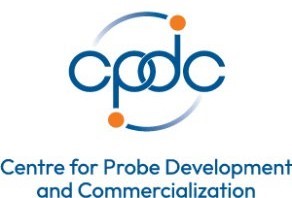

CPDC FUNDS RESEARCH AT CAMH FOR DEVELOPING ALK2-TARGETING PET TRACER FOR DIAGNOSIS OF PEDIATRIC BRAIN CANCER
ALK2 is overexpressed in several rare diseases, including diffuse intrinsic pontine glioma (DIPG) – a rare childhood brain cancer with no effective treatments currently. ALK2 has been identified as a promising target for DIPG treatment with novel small molecule inhibitors able to block ALK2 and prevent the growth and spread of DIPG tumours. The collaboration between CAMH and CPDC represents a significant step forward in the fight against DIPG.
The project is set to begin immediately and is expected to last one year. CPDC and CAMH hope to further the research towards finding a cure for a devastating disease like DIPG, as part of CPDC’s Radiopharmaceutical Initiative program that provides funding for commercial translation of research performed by academic institutions or early-stage enterprises.


CPDC FUNDS RESEARCH AT CAMH FOR DEVELOPING ALK2-TARGETING PET TRACER FOR DIAGNOSIS OF PEDIATRIC BRAIN CANCER
ALK2 is overexpressed in several rare diseases, including diffuse intrinsic pontine glioma (DIPG) – a rare childhood brain cancer with no effective treatments currently. ALK2 has been identified as a promising target for DIPG treatment with novel small molecule inhibitors able to block ALK2 and prevent the growth and spread of DIPG tumours. The collaboration between CAMH and CPDC represents a significant step forward in the fight against DIPG.
The project is set to begin immediately and is expected to last one year. CPDC and CAMH hope to further the research towards finding a cure for a devastating disease like DIPG, as part of CPDC’s Radiopharmaceutical Initiative program that provides funding for commercial translation of research performed by academic institutions or early-stage enterprises.
Quotes
About CPDC
CPDC is a “not-for-profit” corporation founded in 2008 to advance probe (chemical agents that will carry medical isotopes to targets in the body) discovery, development and clinical research, and provide a reliable supply of radiopharmaceuticals. In the past 15 years, CPDC has created four Canadian commercial entities that have advanced the availability of radiopharmaceuticals to the Canadian medical community. CPDC’s mission is to be a global leader in the radiopharmaceutical industry dedicated to transforming patient’s lives by advancing high quality drugs for the diagnosis and treatment of diseases. CPDC’s self-funding business model will continue to identify and advance critical radiopharmaceuticals to meet the needs of Canadian patients and physicians.
Learn more at www.cpdc.ca.
About the Centre for Addiction and Mental Health (CAMH)
The Centre for Addiction and Mental Health (CAMH) is Canada’s largest mental health and addiction teaching hospital and a world-leading research centre in this field. CAMH combines clinical care, research, education, policy development and health promotion to help transform the lives of people affected by mental illness and addiction. CAMH is fully affiliated with the University of Toronto and is a Pan American Health Organization/World Health Organization Collaborating Centre.
For more information, please visit camh.ca or follow @CAMHnews on Twitter.


